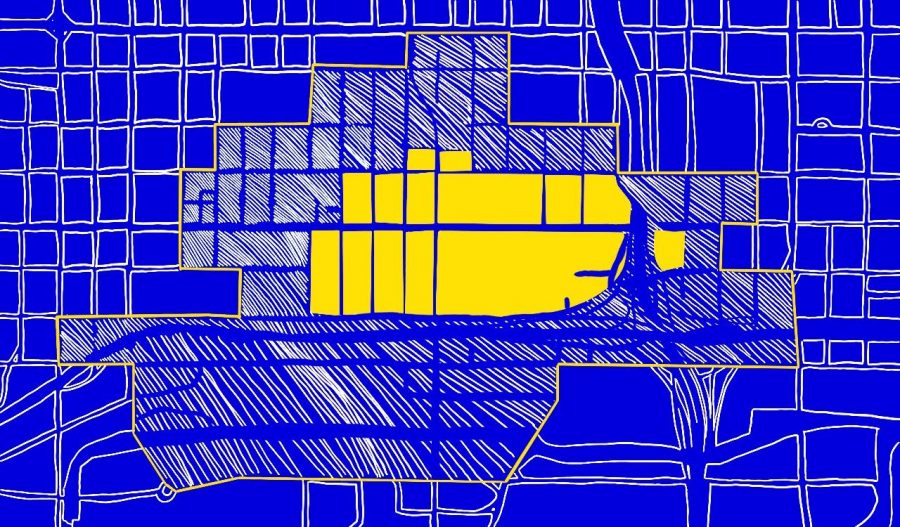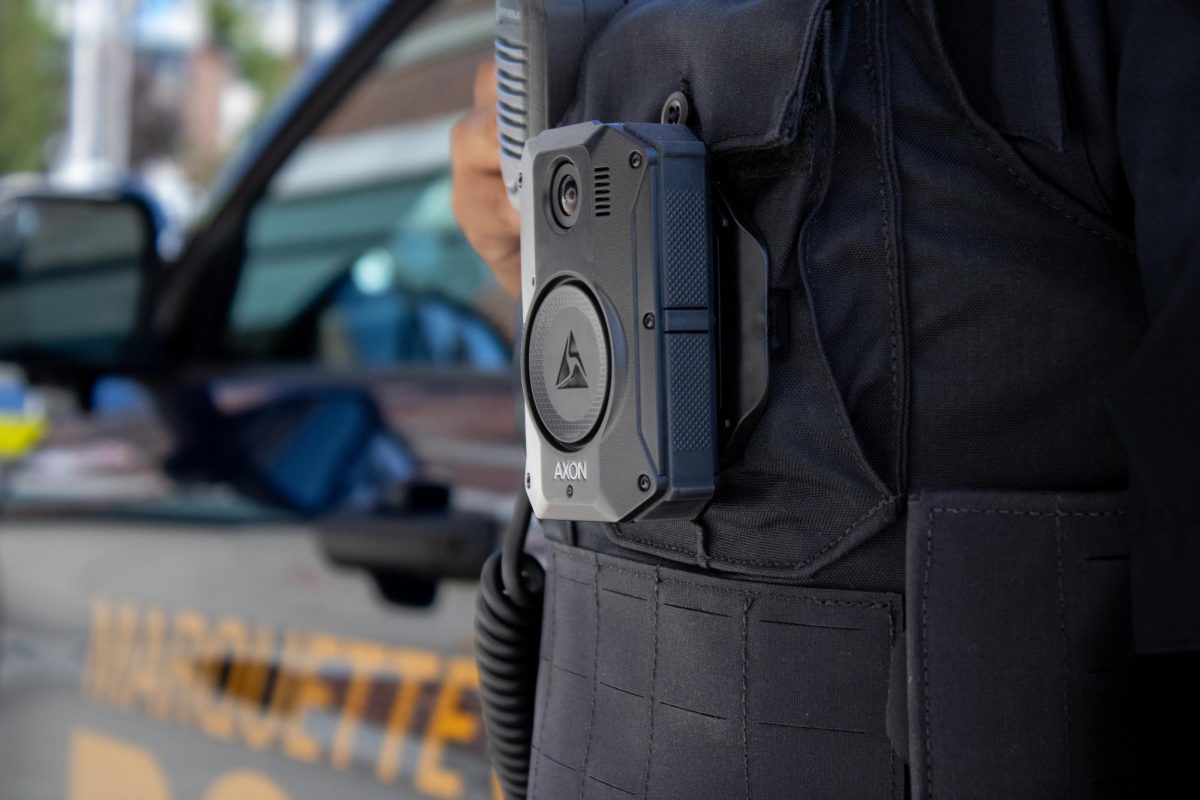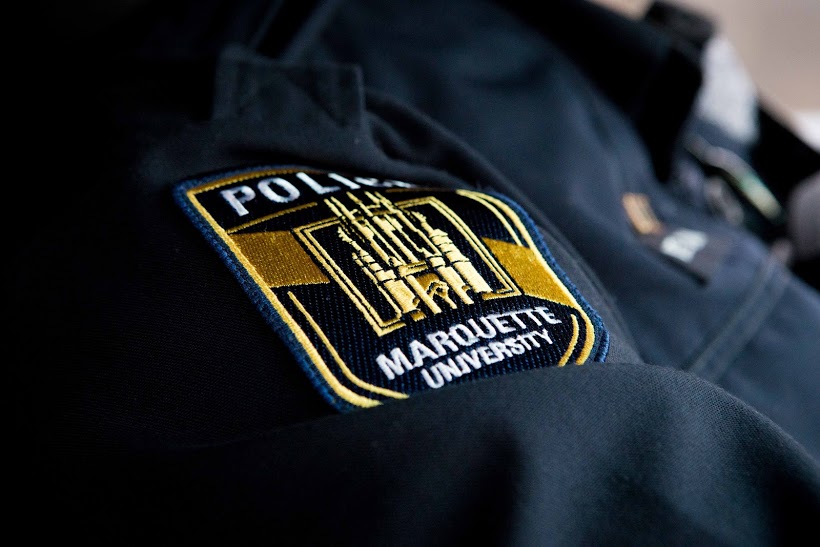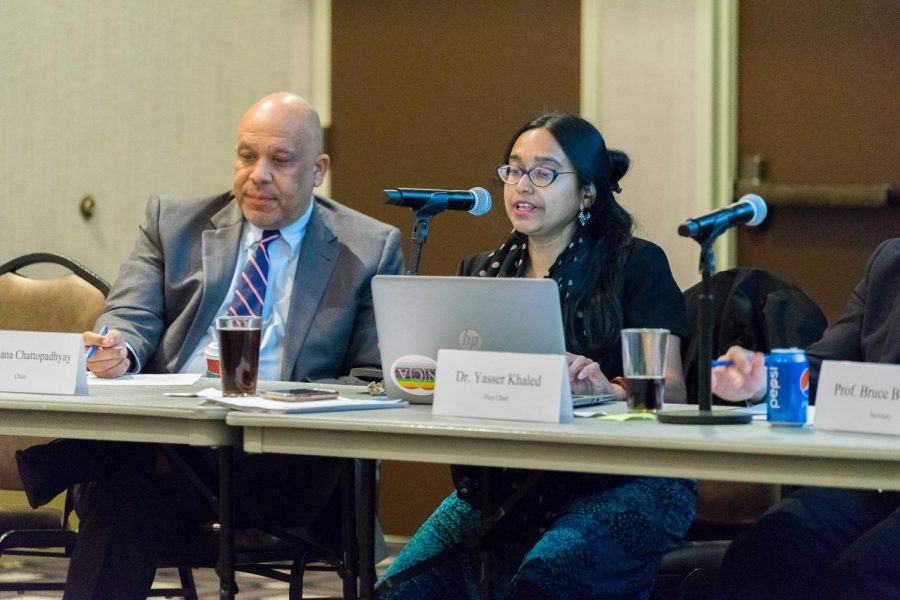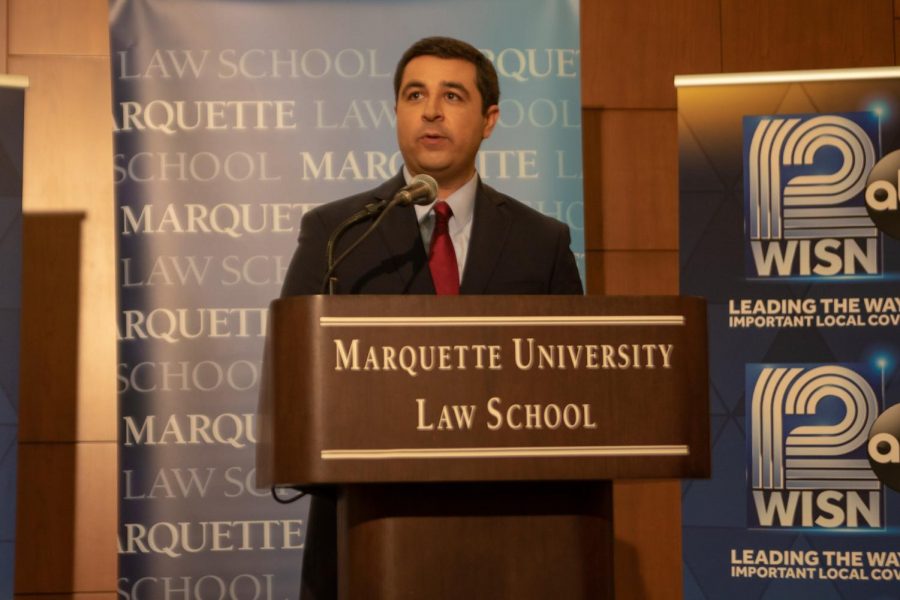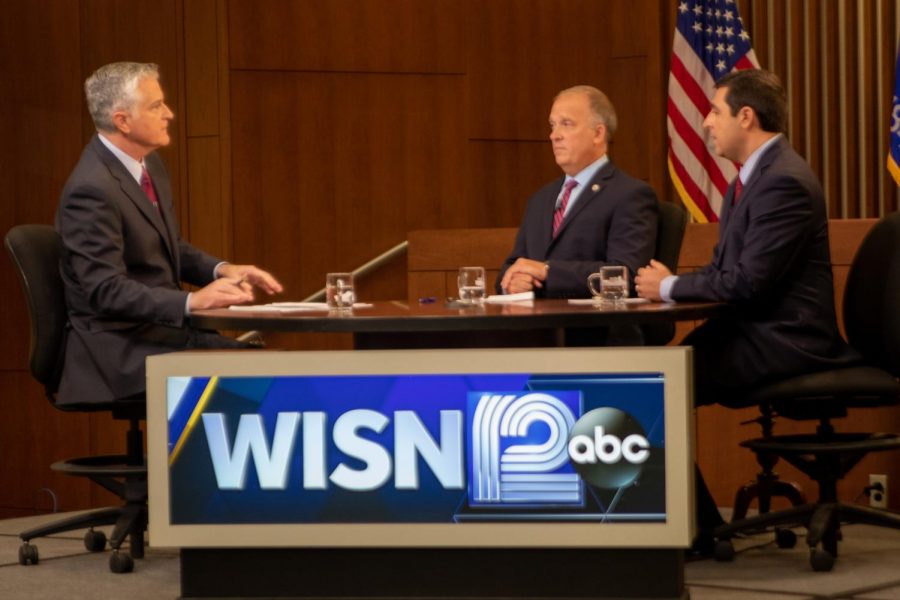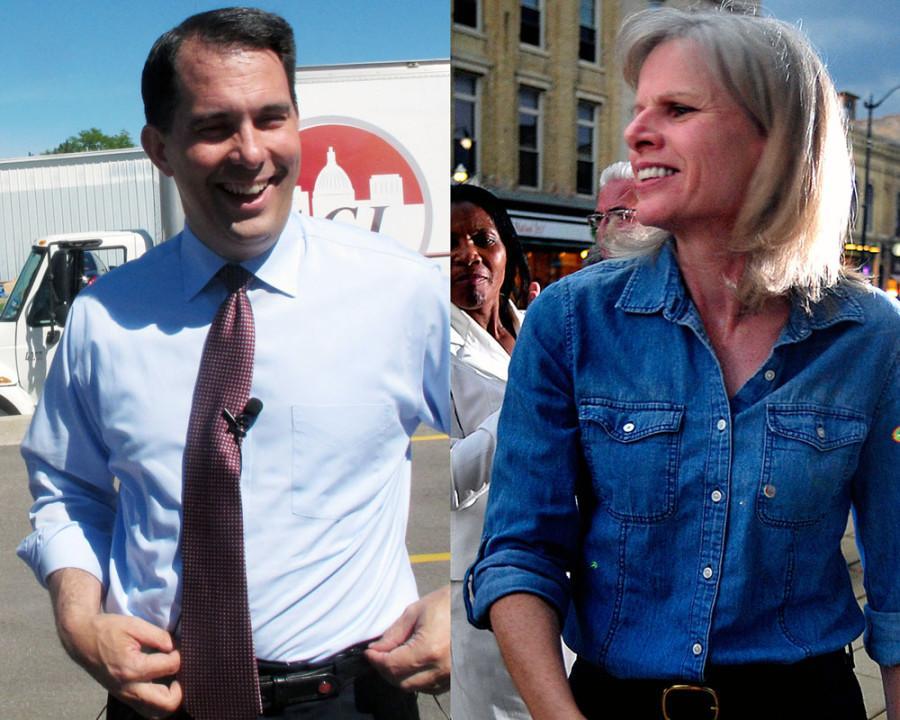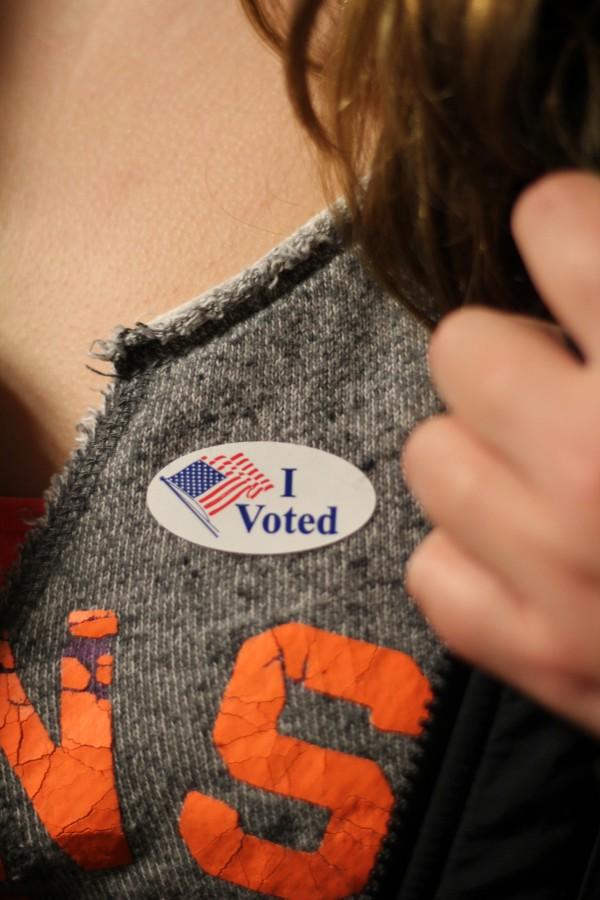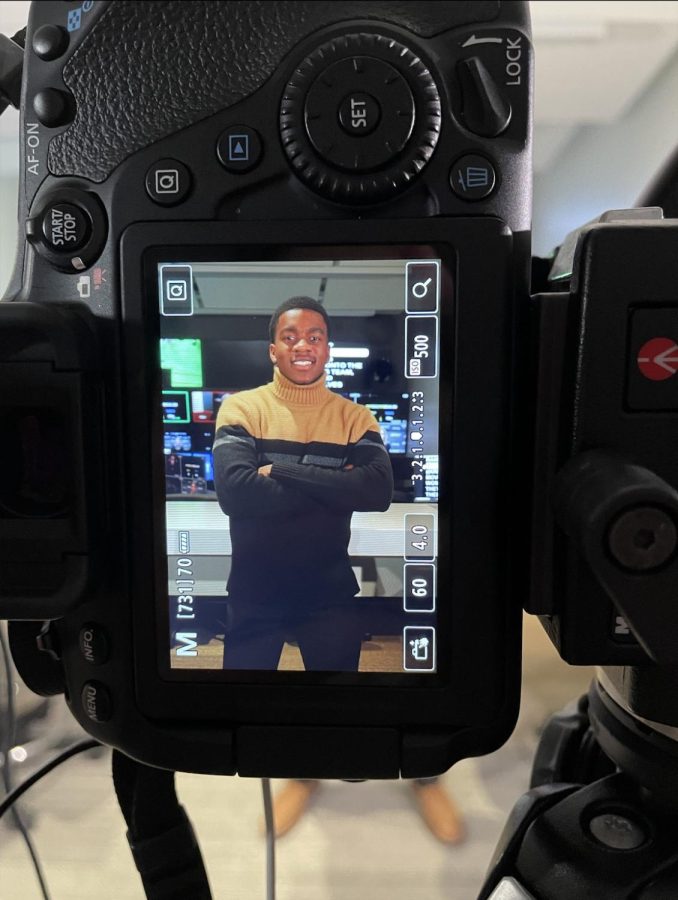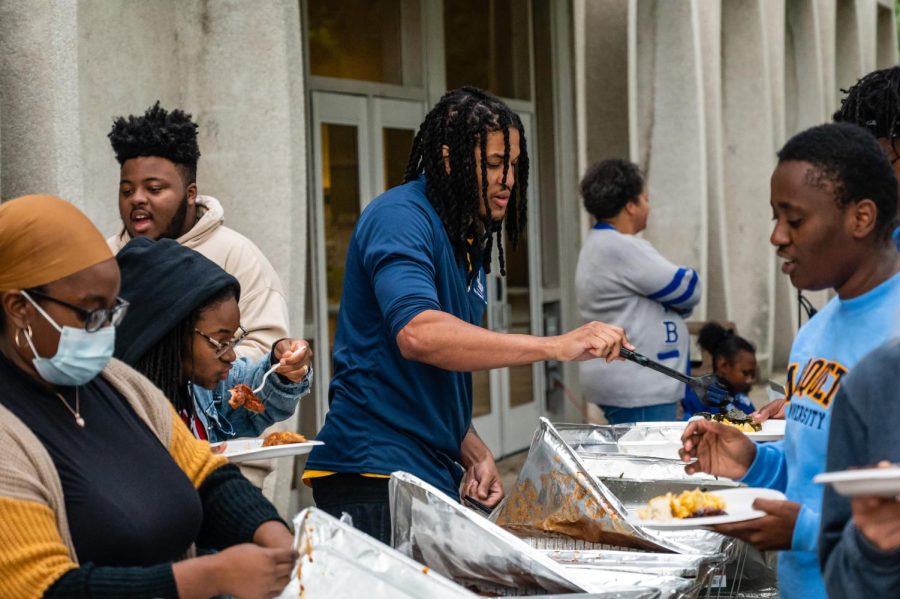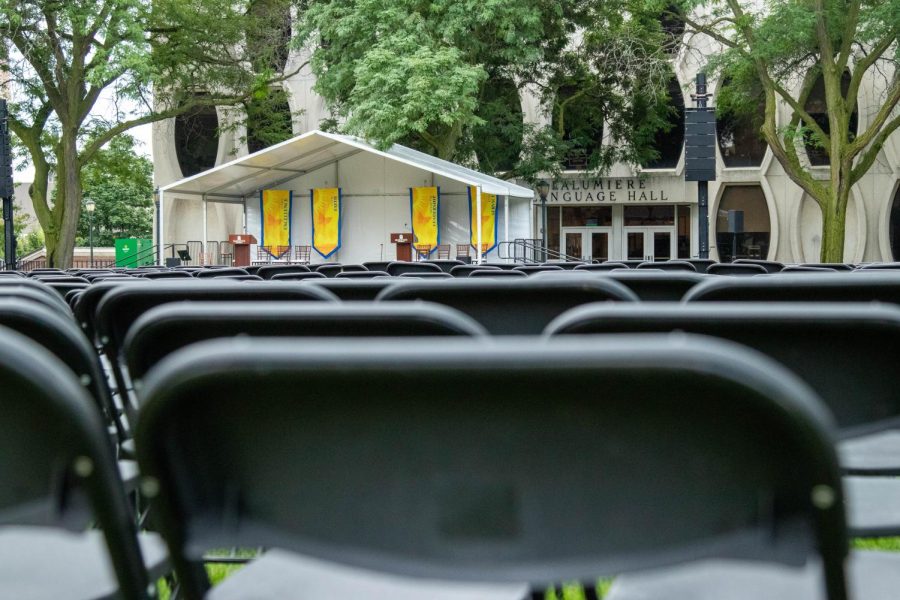At Marquette University, Milwaukee Police Department is not the only law enforcement presence on campus.
The Marquette University Police Department was commissioned May 1, 2015 with the state of Wisconsin’s Department of Justice and Attorney General’s office, becoming a police department.
Originally the Department of Public Safety, MUPD consists of many officers from different backgrounds with one common goal: Ensure the safety and security of the students, faculty, staff and community, MUPD chief Edith Hudson says.
Hudson says her passion for service influences her decisions to be part of MUPD. Hudson previously worked for 25 years with the MPD.
“After leaving the Milwaukee Police Department, I spent some time doing nothing and worked with security management and it was not fulfilling,” Hudson says. “There is something about this work that is fulfilling to me and that is why I came back to it.”
Assistant Chief of MUPD Jeff Kranz says he spent 26 years with the Milwaukee Police Department and stopped working for the department at a fairly young age.
“To go from delivering that service to being a consumer and calling the police for help and seeing deficiencies in how that service was being provided, I got invited to come here and was part of the process of creating this department … I wanted to try and fix those deficiencies and create a small town police department in an urban setting,” Kranz says.
The staff that make up MUPD contain registered police officers by the state of Wisconsin and campus safety officers, Hudson says.
“In our hiring process for police officers, we only accept those with certification by the state of Wisconsin for law enforcement,” Hudson says. “There are rules governing certification for law enforcement. The Law Enforcement Standards Board dictates the standard for training … they provide the framework for what police officers should know and the type of training they should have.”
Molding potential officers into Marquette police goes hand in hand with their vision statement of “seeking to be a national model in creating an empowered community through innovative police practices that foster a safe environment in which to live, work and learn” according to the MUPD website.
Along with training the police officers. MUPD also trains their police dog Nattie who has a large prescence on campus.
Officer Katie Berigan, who works with Nattie the most, says an Instagram page was created for the dog.
“(It) was created so that people can follow Nattie and make that connection,” she says.
Berigan says being a police officer in a large city starts with being an educator.
“It’s a bigger role for us to make that connection to the campus community,” Berigan says.
Whether it’s with MPD or MUPD, it is not always easy being a police officer, Hudson says.
“We want to go home too,” Hudson says. “We do not want anyone to hurt us and we do not want to hurt anyone. So making sure we can safely go home to our families and making sure folks we come in contact with are safe after their interaction with us (is important) … and having the willingness to still go to work knowing the potential danger that exist.”
Kranz further illustrates what it is like getting ready for work as a police officer.
“It’s crazy because everyday when you are getting dressed for work and you are putting your bullet proof vest on, I just pause for a second,” Kranz says. “I think that I am going to work and the work that I do requires me to wear this so that people do not shoot me, (that) just kind of strikes me every now and then.”
Hudson adds that “part of the concern for officers, is not being able to help people who need help. Not everyone wants our help or takes our advice that we give them.”
At the end of the day, MUPD wants to change the way that culture has perceived the police with the amount of police brutality stories in the news, especially in recent years, Kranz says.
The relationship between the MUPD and the people are essential for not only stopping something from happening now, but also for future encounters, he says.
“If something happens in Charlottesville or Houston and it goes viral, you feel like you get punched in the gut and it’s totally out of our control and it is so frustrating (to see),” Kranz says. “We work so hard to change the perception of police or bridge the gap that has occurred.”

